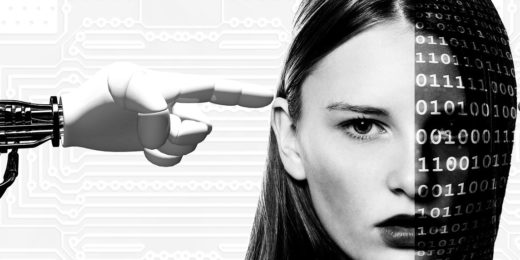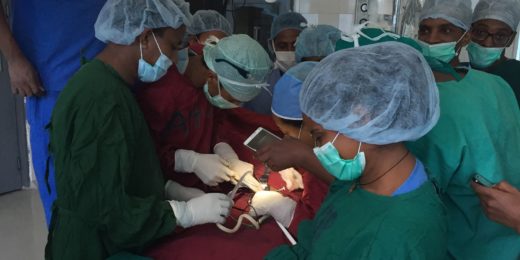Stanford researchers develop a simplified method for decoding electrical activity in the brain, which could lead in the future to improved prosthetics.
Author: Jennifer Huber
AI could help radiologists improve their mammography interpretation
Stanford researchers develop a machine-learning computer model for mammography assessment in hopes of aiding radiologists’ clinical decisions.
Celebrating cancer survivors by telling their stories
A recent Stanford Medicine event, Celebrating Cancer Survivors, brought survivors together to share a variety of stories about living with cancer.
Physicians need to be educated about marijuana, resident argues
In an editorial, a Stanford resident argues for the need to enhance physician education about marijuana to help guide clinical decisions.
Ramadan: Advising clinicians on safe fasting practices
A Stanford psychiatrist gives practical advice to American clinicians unfamiliar with Ramadan fasting, a common spiritual practice for many Muslims.
Creativity can jump or slump during middle childhood, a Stanford study shows
A new Stanford neuroscience study reveals that creativity can slump or bump between ages 8 and 10, depending on the individual.
Pokémon experts’ brains shed light on neurological development
A Stanford study shows Pokémon expertise developed during childhood activates the brain region that processes information from the center of the retina.
What healthy looks like: New study offers clues based on personalized tracking
Stanford scientists and their collaborators tracked the health of over 100 people for several years, flagging early signs of disease.
Genetic roots of psychiatric disorders clearer now thanks to improved techniques
A Stanford researcher explains that genome-wide association studies of psychiatric disorders are far more reliable than older, smaller genetic studies.
Tips for discussing suicide on social media — A guide for youth
New guidelines offer teens and young adults practical tips on how to safely and constructively interact on social media about suicide.
Designing an inexpensive surgical headlight: A Q&A with a Stanford surgeon
Millions of people are at risk from inadequate or unreliable lighting during surgery, so a Stanford surgeon is part of a team developing an affordable surgical headlamp.
The future hope of “flash” radiation cancer therapy
A radio show features a Stanford oncologist discussing ultra-fast "flash" radiation therapy, which may kill cancer cells with less collateral damage.
The future of genomics: A podcast featuring Stanford geneticists
Stanford geneticists discuss the future of genomics, including the importance of studying diverse populations for medical research.
Can AI improve access to mental health care? Possibly, Stanford psychologist says
A Stanford psychologist discusses the future of psychiatric artificial intelligence, including the challenges and potential benefits for AI-based mental health assessment.
Soda taxes increase prices but lower consumption, studies find
Taxes encourage people to buy less soda, according to two new studies that find sugar-sweetened beverage taxes reduce local consumption.
Myths vs. facts: Stanford psychiatrist discusses schizophrenia
A Stanford psychiatrist busts pervasive myths and explains key facts about schizophrenia, a chronic disease charactorized by altered thinking.

















